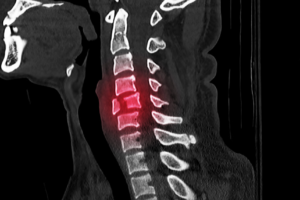As we observe Brain Injury Awareness Month, neurosurgeon Hooman Azmi, MD, discusses important issues to be aware of regarding traumatic brain injury.
Traumatic brain injuries (TBIs) occur when a person’s head sustains an impact from a fall, assault, sports injury, car accident, or similar injury. Each year an estimated 1.5 million Americans sustain a TBI, annually according to the CDC.
Severe TBI can have serious and devastating consequences, including coma, death, and permanent disability. Moreover The CDC also reports that, each year, TBIs cause:
- More than 200,000 hospitalizations
- Over 80,000 long-term disabilities
- About 50,000 deaths
The symptoms of TBI vary and depend on the extent of injury. Mild symptoms can include headaches, confusion, nausea, and blurry vision. More serious symptoms include lethargy, depressed consciousness, or coma.
Take Concussions Seriously and Get Prompt Care
What is important to recognize is that a concussion, which is a form of traumatic brain injury, can occur without the person losing consciousness from the impact. A simple headache after a head injury classifies that injury as a concussion. This is important as the lack of a proper diagnosis of a concussion can have significant negative impacts, especially in sports. There are now better and clearer guidelines for return to sports and to work after a concussion and it is very important for someone who has sustained a concussion to seek appropriate care for such an injury.
After a concussion, symptoms may persist such as headaches, irritability, confusion, poor sleep, anxiety, poor focus. These symptoms comprise a post-concussive state, and they may last for some time after the injury. It is important to recognize them as such and to follow proper guidelines for returning to normal activity.
Thankfully, while severe traumatic injuries can be quite serious and potentially life-threatening, with prompt and appropriate care, there is good hope for survival. Patients with severe traumatic brain injuries must be taken to designated trauma centers quickly. Hospitals with trauma centers have expert teams who can promptly diagnose and treat a patient with a severe traumatic brain injury. Often these early interventions significantly improve the odds of surviving the TBI and having a good recovery.
The most important point to keep in mind is that prompt intervention is critical.
Additional Resources:
- Topic page on Traumatic Brain Injuries [Center for Disease Control]
- Read more from our Neurotrauma Center



